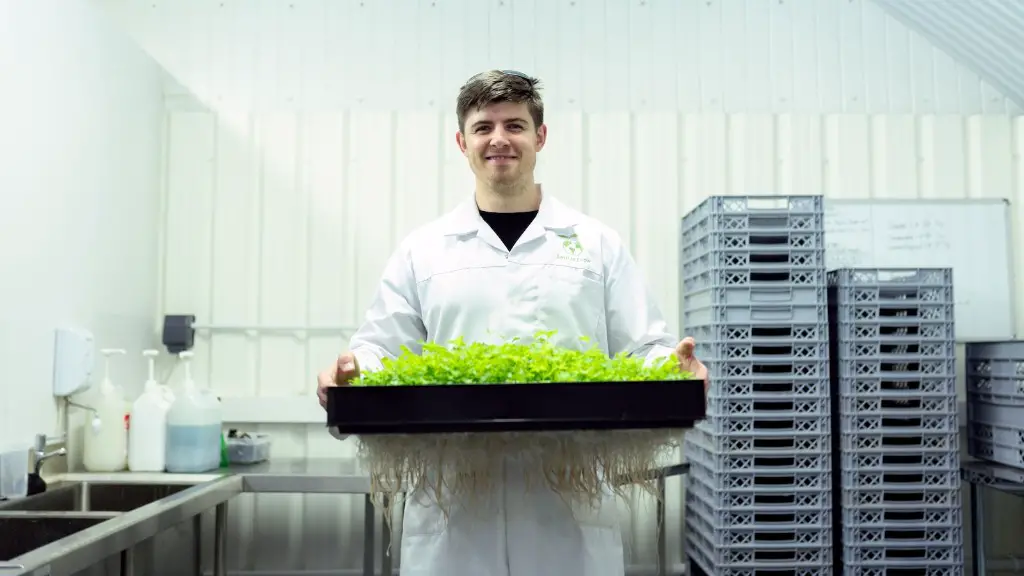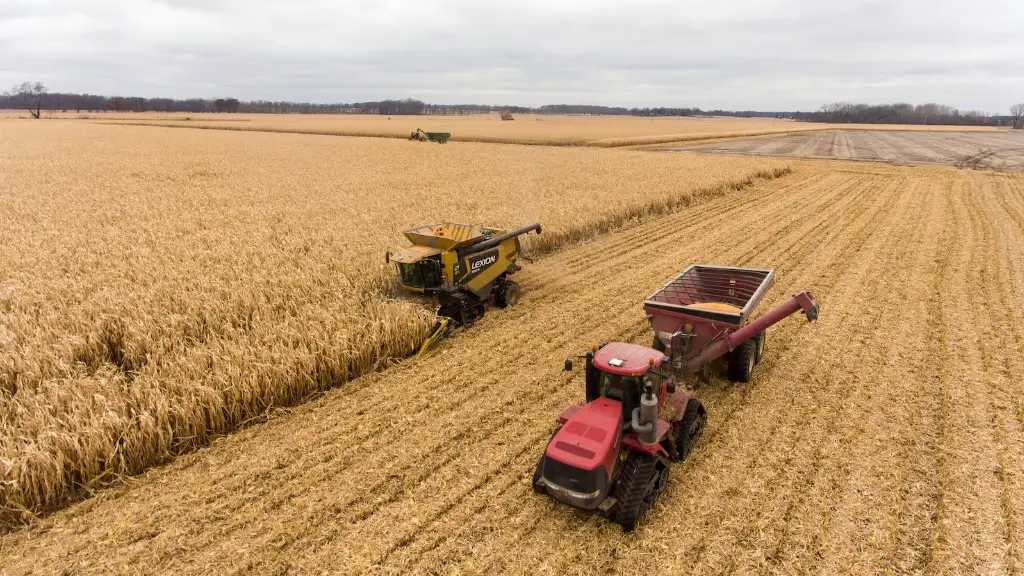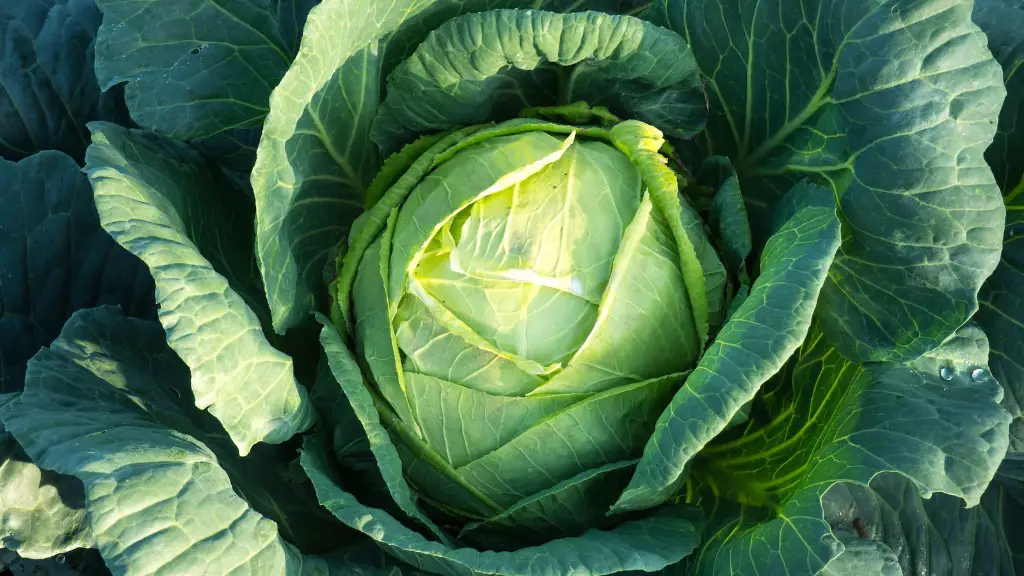Agriculture has been greatly impacted by the advancements in scientific research. Over the years, it has been determined that modern agricultural techniques, such as crop rotation, can significantly increase crop production. Similarly, increased understanding of crop genetics, soil composition and plant diseases led to the development of new, improved farming methods. Furthermore, scientific research has made a major contribution to the quality of farming methods.
By utilizing modern scientific techniques and tools, such as satellite imagery, researchers have been able to make detailed analyses of soil composition and environmental conditions, enabling better farming techniques. Additionally, modern mechanised farming techniques took advantage of technological innovations to improve efficiency, enabling greater yields and reducing the amount of labour required. By understanding the impact of crops on the environment, scientists have been able to develop techniques for improving soil fertility, reducing erosion and helping fight against climate change.
The advent of modern hygienic practices and the use of antibiotics and other drugs has enabled the safe transformation of farming into large-scale commercial operations. Scientists have also revolutionised the study of nutrition by providing a direct link between the consumption of balanced diets and improved health outcomes. Moreover, genetic engineering and the development of organic farming techniques has revolutionised the farming industry and allowed for more targeted production of food.
Research and development of new technologies, such as pest-resistant crops, has allowed farmers to produce more with less and has enabled the use of chemicals and fertilisers to be reduced in order to reduce pollution and protect the environment. Finally, advances in technology have allowed for the development of sophisticated machinery that can increase efficiency, reduce costs, and improve the quality of agricultural products.
Genetic Engineering
Genetic engineering is one of the major scientific advances that has helped to increase the productivity of crops and farm animals. Through the process of genetic modification, crops can be more resistant to drought, pests and diseases. The process of inserting genes from one organism into another organism is also used to improve the quality and yield of crops, and farm animals can be specifically bred and selected for their desired characteristics.
Genetic engineering has also made possible the selective and precise manipulation of crop and animal genomes, allowing for the creation of higher-yield varieties and the production of genetically modified organisms that are resistant to pests, diseases and drought. Genetically modified crops can also boost crop yields and enable a more sustainable production of food.
Genetic engineering has enabled scientists to produce new and novel varieties of crops, which can be tailored to the climatic conditions, diseases and pests in an area. This is of particular benefit for developing countries, as the new breeds of genetically modified crops can be especially adapted to their environment and are more resistant to drought, crop diseases and pests.
Genetic manipulation also makes it possible to produce disease-resistant farm animals that produce higher yields. This has created new opportunities for farmers and has enabled them to meet the growing demand for animal protein, while reducing costs and increasing profits.
In addition, molecular biology techniques such as genome sequencing and analysis have enabled scientists to gain an insight into crop genetics and the biological mechanisms that allow new and improved varieties of crops to emerge.
Pest Control
Pest control is a critical factor in achieving successful agricultural yields. Pests, such as insects, rodents and weeds, can damage crops and reduce production. In response, scientists have developed various techniques for controlling pests, such as the use of pesticides, traps and genetically modified crops.
Pesticides are used to kill insects and weeds but their use can be harmful to human health and the environment. Therefore, alternative methods for pest control, such as integrated pest management, are being explored. Integrated pest management involves a combination of cultural, mechanical and chemical methods for the effective control of pests.
Biotechnology is also used to develop genetically modified crops with enhanced pest-resistance. These crops are resistant to certain pests, pathogens and herbicides, thus reducing the need for spraying of pesticides. Additionally, insect biocontrol is a method of using predatory and parasitic insects to reduce the populations of pests. This method is beneficial as it is safe, cost-effective and environmentally friendly.
The use of traps and other physical barriers is also important in controlling pests. Physical barriers can be in the form of nets and fences around fields, or traps such as light and sound traps, bait traps and sticky traps. These traps can either capture or kill pests, or simply act as a deterrent.
Finally, scientists have developed techniques for controlling weeds, such as the use of herbicides and crop rotation. Chemicals are often used to kill weeds, however, these can have a detrimental effect on the environment, so alternative methods such as mulching and the use of cover crops are being explored.
Soil Fertility
Soil fertility is critical for the successful production of food. A soil that is not rich in nutrients cannot support the growth of healthy crops, resulting in reduced yields. Therefore, scientific research has been conducted to improve soil fertility and soil management practices.
The application of fertilisers, such as nitrates, phosphates and potassium, can help to improve soil fertility. By understanding the impact of these substances on the soil, scientists have been able to develop better management strategies, such as the use of more targeted fertilisers, the application of fertilisers at different times and intervals, and the application of manure and compost to add organic matter to the soil.
The use of cover crops, such as legumes and grasses, can help to improve soil fertility. Legumes are particularly beneficial as they are nitrogen-fixing plants, meaning that they are able to add nitrogen to the soil, thus improving soil fertility. Grass cover crops can also help to reduce soil erosion and improve the soil structure.
The use of soil amendments, such as limestone and gypsum, can also help to improve soil fertility. These materials can help to raise the pH level of the soil, which can have a positive impact on the availability of nutrients for crops. Additionally, soil amendments can help to improve the structure and drainage of the soil.
Finally, scientists have developed modern techniques for soil mapping, analysis and testing. This allows them to measure and monitor the nutrient status of soils and gain an understanding of how the soil can be managed in order to improve fertility. This information can be used to develop effective strategies for managing soils.
Climate Change
Climate change is now considered to be one of the greatest challenges facing agriculture. Agricultural production is particularly vulnerable to the effects of climate change, such as increasing temperatures, rising sea levels and more extreme weather events. In light of this, scientists are looking for ways to mitigate the effects of climate change on agriculture.
Climate-smart agriculture is an approach to agriculture that is designed to improve production while reducing the impacts of climate change. This involves the use of mitigation strategies such as reduced tillage, increased water and nutrient use efficiency, integrated pest management and improved soil health. Through this approach, more efficient and sustainable production can be achieved.
Researchers are also developing new varieties of crops that are more resilient to climate change. Such varieties may be more resistant to drought, pests and diseases, and can have higher yields despite harsh environmental conditions. Genetically modified crops are particularly useful for this purpose, as the genes of the plants can be altered to make them more resilient.
Additionally, researchers have looked into the use of biochar to help mitigate the impacts of climate change. Biochar is a type of charcoal that can be added to the soil to improve its water-holding capacity, and it can also help to reduce the levels of carbon dioxide in the atmosphere.
Finally, scientists are also researching ways to help farmers adjust to the impacts of climate change. This includes the use of technology, such as remote sensing, to monitor and predict changes in climate and water availability. Additionally, agroforestry, the integration of trees and shrubs in agricultural systems, has been proposed as a way of helping to reduce climate-related losses.





